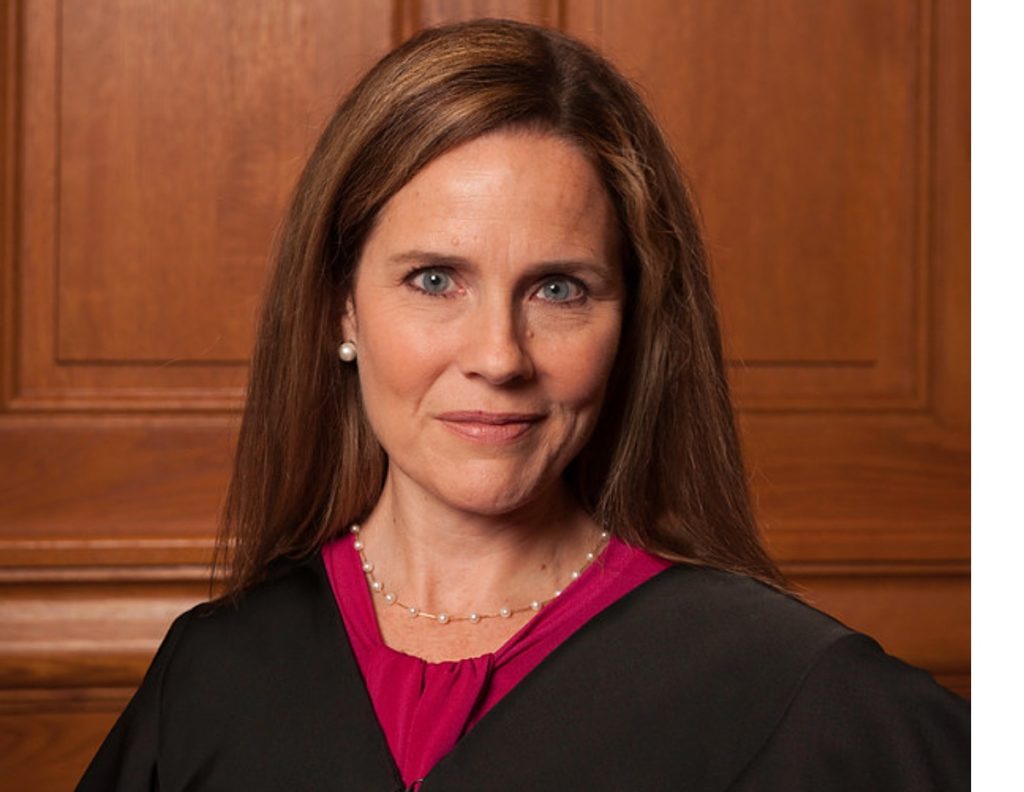
The U.S. Supreme Court is set to hear its first LGBTQ rights case with Amy Coney Barrett on the bench tomorrow when it hears arguments in Fulton v. City of Philadelphia. As we reported earlier, Barrett served for years as a board trustee at Trinity Schools, which barred gay and lesbian teachers and forbid allowing children with same-sex parents.
CNBC reports: “The case concerns a Roman Catholic adoption agency in Philadelphia that claims that it can't match foster children with same-sex households without violating its religious beliefs. After learning about the policy in 2018, Philadelphia refused to refer the group new foster children, citing a city law that prohibits discrimination on the basis of sexual orientation. The city added language to its 2019 contracts specifically prohibiting such discrimination against potential foster parents. The group, Catholic Social Services, is suing to defend its ability to refuse to work with same-sex households. In court papers, the group has argued that Philadelphia's moves unlawfully targeted its right to exercise its religion, which is protected under the First Amendment.”
Philadelphia says it can enforce discrimination policies and protect its LGBTQ residents.
Writes SCOTUSblog: “The question of how to balance sincere religious beliefs against the government's interest in protecting LGBTQ rights is one with which the justices have struggled. In 2018, the justices confronted this question in the case of a Colorado baker who refused to create a custom cake for a same-sex couple because he believed that doing so would violate his religious beliefs. The justices ultimately issued a narrow ruling for the baker, holding that the state administrative agency that had ruled against him had treated him unfairly by being too hostile to his religious beliefs. The justices did not decide, however, whether requiring the baker to bake a cake for a same-sex couple would violate his right to freedom of speech under the First Amendment.”
In a June brief filed in the case, the Trump administration called on SCOTUS to allow religiously affiliated adoption agencies to discriminate against LGBT people, and refuse to place children with same-sex couples.
The Washington Blade reported: “In a 35-page brief, U.S. Solicitor General Noel Francisco and other Justice Department attorneys maintain the City of Philadelphia has ‘impermissibly discriminated against religious exercise' under the First Amendment by requiring Catholic Social Services to abide by a contract requiring LGBTQ non-discrimination practices in child placement. ‘Governmental action tainted by hostility to religion fails strict scrutiny almost by definition,' the brief says. ‘This court has never recognized even a legitimate governmental interest — much less a compelling one — that justifies hostility toward religion.' The U.S. government isn't a party to the case, known as Fulton v. City of Philadelphia, so the brief is completely voluntary. In justifying the brief before the Supreme Court, the filing makes the case the Justice Department has a compelling interest to intervene. ‘This case concerns the application of the Free Exercise Clause of the First Amendment to the City of Philadelphia's termination of a contract allowing Catholic Social Services to help place children in the City with foster parents, on the basis of Catholic Social Services' unwillingness to endorse same-sex couples as foster parents,' the brief says. ‘The United States has a substantial interest in the preservation of the free exercise of religion. It also has a substantial interest in the enforcement of rules prohibiting discrimination by government contractors.'”
More from Metro Weekly: Supporters of the city argue that a Supreme Court ruling in favor of CSS would have disastrous implications for the more than 400,000 children in foster care, some of whom will be denied opportunities to find more permanent placements because the pool of available foster parents has been decreased by excluding those who don't conform to an agency's stated religious beliefs. They also argue that it would open the door to discrimination in other government services, as any individual, business, or agency will be allowed to fabricate a set of religious or moral beliefs justifying their decision to discriminate against those seeking to access or utilize certain services.”
Said Leslie Cooper, the deputy director of the ACLU's LGBT & HIV Project, in a statement: “The Trump administration submitted a brief to the Supreme Court on the side of a taxpayer-funded agency that is seeking a constitutional right to turn away people who fail to meet the agency's religious criteria. While this case involves rejecting LGBTQ families, if the Court accepts the claims made in this case, not only will this hurt children in foster care by reducing the number of families to care for them, but anyone who depends on a wide range of government services will be at risk of discrimination based on their sexual orientation, religion or any other characteristic that fails a provider's religious litmus test.”
SCOTUSblog adds: “After the Oct. 26 confirmation of Justice Amy Coney Barrett to fill the vacancy created by the death of Justice Ruth Bader Ginsburg, this case will be one of the first cases argued with a new, solidly conservative majority on the court. Two justices have recently reiterated their criticism of the court's 2015 ruling in Obergefell. In a statement regarding the denial of review in the case of Kim Davis, the Kentucky clerk who refused to issue marriage licenses after the decision in Obergefell, Justices Clarence Thomas and Samuel Alito wrote that the ruling “will continue to have ‘ruinous consequences for religious liberty.'” However, if there are not five votes for the kind of sweeping ruling that CSS seeks, the justices could once again sidestep the question, as it did in the case of the Colorado baker, by issuing a narrower ruling – for example, by holding that Smith does not apply because the city's nondiscrimination policy is not neutral or generally applicable.”
A decision in the case is expected by the end of June.



